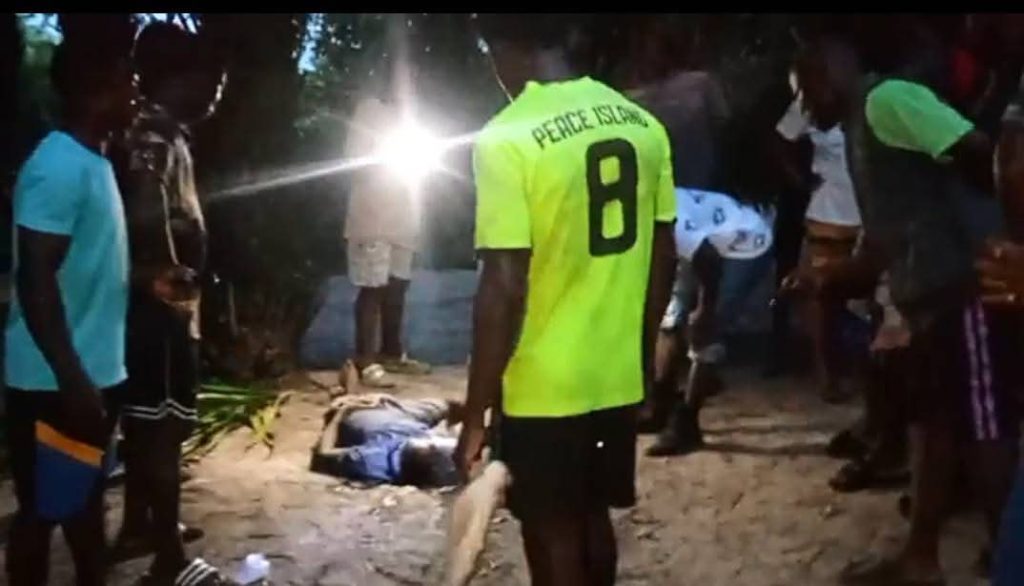The 2025 Liberia Human Rights Report paints a bleak picture of the nation’s human rights landscape, highlighting a range of abuses from arbitrary killings and detentions to restrictions on freedom of expression and pervasive corruption. The report further underscores the government’s inaction in addressing violence against women, including rape, domestic violence, and female genital mutilation. Among the concerning issues raised, the tragic killing of a 22-year-old fisherman, known as “Favor,” by an off-duty police officer on Gbanjor Beach stands as a stark example of police brutality and extrajudicial killings. This incident, along with a previous fatal shooting involving another police officer in the same community, raises serious questions about the LNP’s conduct and its respect for fundamental human rights, particularly the right to life and due process.
The incident involving “Favor” highlights a disturbing pattern of police officers wielding excessive force, often resorting to lethal measures in situations that could be de-escalated. Eyewitness accounts suggest that the officer, Boima Massaley, approached a group of young men with an aggressive demeanor, brandishing his firearm, which prompted them to flee. Massaley then fired several shots, fatally wounding Favor. While departmental protocols placed Massaley on administrative leave pending an investigation, this incident underscores the urgent need for comprehensive police reform, including rigorous training on the ethical use of force and respect for human rights. The fact that the officer was off-duty at the time raises further concerns about the culture of impunity and the normalization of carrying firearms even outside of official duties.
The report also details a previous incident in Gbanjor involving Police Inspector Fayiah, who fatally shot a resident named Mr. Mohammed during a confrontation. This case, along with Favor’s death, points to a troubling history of violence involving police officers in the community. The recurrence of such incidents underscores the systemic nature of the problem and the urgent need for accountability within the LNP. It is imperative that thorough investigations are conducted in both cases, and those responsible are held accountable to deter future abuses and restore public trust in law enforcement. The prevalence of these incidents suggests a culture of impunity within the police force that needs to be addressed through robust oversight and accountability mechanisms.
The concept of extrajudicial killings, defined by the United Nations as the deprivation of life without due process and with the involvement or complicity of government agents, is central to understanding the gravity of the human rights situation in Liberia. These killings represent a blatant disregard for the rule of law and the most fundamental human right – the right to life. The report highlights a stark contrast between the value placed on human life in Western societies, where one life lost is considered too many, and the perceived desensitization to violence and death in Liberia and other African contexts. This cultural difference, influenced by historical and societal factors, underscores the need for a fundamental shift in attitudes towards human life and the importance of upholding the rule of law.
The power dynamics in Liberia further contribute to the prevalence of human rights abuses. The report identifies a delicate balance between the exercise of power and its potential for abuse, noting that both the misuse and the underutilization of power can lead to the compromise of individual rights and dignity. The police force, entrusted with significant powers to maintain order and protect citizens, often oversteps its boundaries, resulting in unlawful arrests, detentions, brutality, and extrajudicial killings. This pattern of abuse points to a systemic failure within the LNP and the broader justice system, requiring a comprehensive overhaul to ensure accountability and respect for human rights.
Addressing these deep-seated issues requires a multi-pronged approach. First and foremost, rigorous training and retraining programs for police officers are essential to instill a deep understanding of ethical responsibilities, the importance of upholding the rule of law, and the proper use of force. Officers must be educated on the rights of all individuals, including the right to a fair trial, and discouraged from engaging in arbitrary justice or summary executions. Secondly, the current system, where police officers often act as investigator, prosecutor, judge, and executioner, must be reformed. This concentration of power creates an environment ripe for abuse and undermines the integrity of the criminal justice system. Finally, holding police officers accountable for their actions, particularly in cases of extrajudicial killings, is crucial to deter future misconduct and rebuild public trust. Prosecuting officers involved in such incidents, like Boima Massaley, is a necessary step towards affirming the importance of justice and human rights in Liberia. The continued failure to address these systemic issues will only perpetuate the cycle of violence and impunity, further eroding the fabric of Liberian society.














